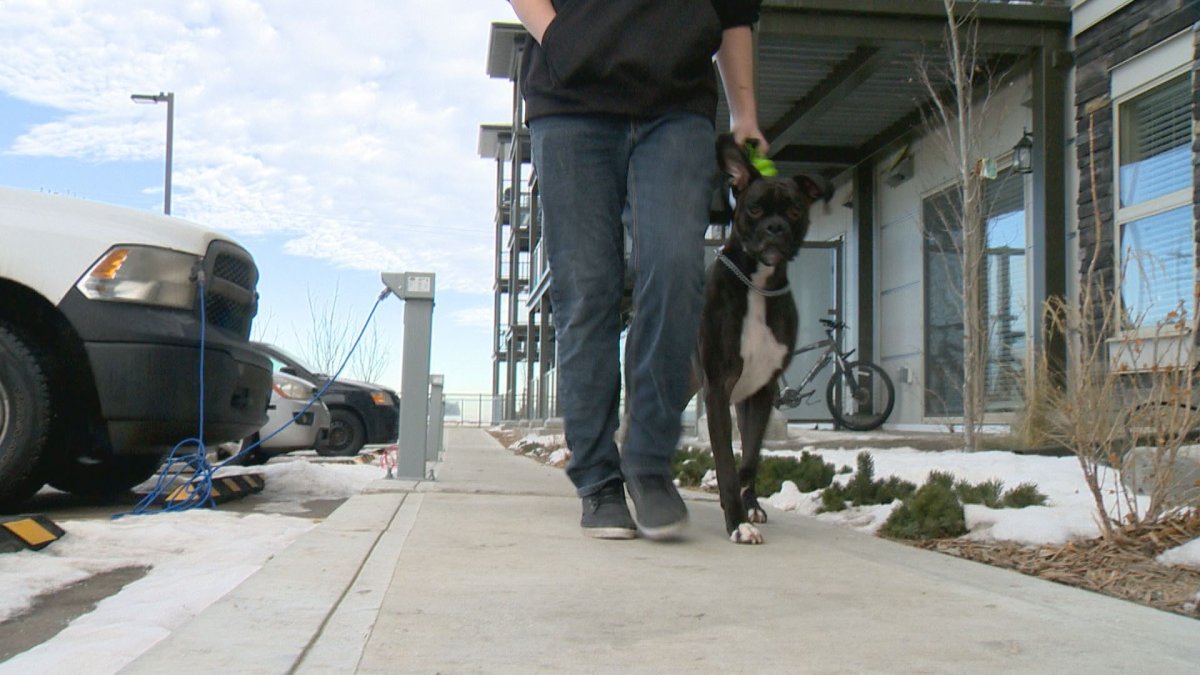The pooprint. It’s the latest way some landlords are getting dog owners to scoop the poop.

“They do a doggie DNA test for all the dogs in the building, and then if someone’s not cleaning up after the dogs, they can find out who it is,” dog owner Kevin Mullan said.
Residents in Regina’s Imperial Properties must take a swab from the inside of their dog’s mouth. Their pet’s info is then stored in a DNA registry.
“Should that animal or dog ever accidentally poo on the lawn and that poo is not removed, when our landscapers do the grass cutting or the snow removal, they take a small sample of what’s been left and it gets mailed in and assessed,” Adrian Schulz, Imperial Properties president, said.
“Property owners have for eons had problems with dog waste on the property, and of course residents never own up to the fact that it was their dog or their waste. There’s always conflicts between residents. This solves the problem,” Ernie Jones, PooPrints sales manager, said.
Those who are caught not cleaning up their pet’s mess are fined $200. Schulz says the rules are made very clear to tenants before they move in.
“When a resident registers their animal as part of the application process there is a simple agreement they sign that they agree to the terms and conditions,” Schulz said.
“It’s a very rare occurrence that a fine is issued because most people are so respectful of the community rules,” he added.
Imperial Properties has been using PooPrints for three years, Schulz said.
“We’re extremely pleased with the results,” he said. “Having this way of enforcing people to pick-up after their animals helps keep the community clean and helps keep all the people who live in the building happy.”
“I like it because of the fact that we can actually identify your dog and where you’re going to be. For the pet owner that’s not responsible, it puts them on the line,” dog owner Blair Slasynski said.
“It was $125 for the program, and every penny was worth it,” he added.
Mullan also thinks the program is a good idea.
“If there’s any mess on the lot at all, they can tell which dog does it. That way the offending people have to clean it up and it’s not everybody else getting in trouble for it,” he said.
Reactions from other dog owners are mixed.
Arleen Patrick said she thought testing dogs for DNA was a bit much.
“I think that’s carrying it a bit far,” she said, adding that she wouldn’t move into a place that made DNA-testing for dogs a rule. “I wouldn’t want to live in a place that was that sticky.”
“I think it’s good. I think it’s progressive. I think it’s important because especially when little ones are playing in the grass or the snow, and they see yellow snow or poop, they don’t know not to touch it,” Elisa Bell said. “I think it would be a cool idea for the dog park too.”




Comments